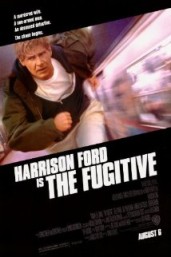This comedy about a mother-son road trip starring Barbra Streisand (Joyce) and Seth Rogen (Andy) doesn’t feature energy, unless you count a discussion about rental car options and the gas expense for SUVs. However, there is a funny exchange regarding bottled water.
Following dinner with family friends, Andy is sitting at his mother’s kitchen table drinking from a plastic water bottle. His mother comes in praising him for the healthy habit of drinking water, unscrews the lid from a plastic bottle just cleared from the table, refills it and promptly returns it to the refrigerator explaining that there’s no reason to pay for new bottles when you can refill them. Andy looks skeptically at his bottle and pushes it further away on the table.
It’s unclear whether his aversion is to tap water, refilling a disposable plastic bottle (due to sometimes cited concerns of leaching) or the fact that his mom wasn’t washing the bottle before refilling and putting it in the fridge for anyone to grab. However, it brought to my mind our sometimes illogical perceptions of drinkable water. In the United States, most of us have very good municipal water supply systems from which tap water is clean, readily available, and practically free. However, we will pay something like 500 times more for bottled water often assuming it is cleaner and healthier although many brands come from municipal water supplies themselves.
Why are water bottles on an energy blog you ask? Well, water and energy are inextricably linked in modern society. We use a whole lot of water for fuel extraction and cooling power plants and a whole lot of energy for treating, pumping, and heating water. Plastic water bottles are one aspect of this energy-water nexus. The Pacific Institute estimated that in 2006,
- Producing the bottles for American consumption required the equivalent of more than 17 million barrels of oil, not including the energy for transportation
- Bottling water produced more than 2.5 million tons of carbon dioxide
- It took 3 liters of water to produce 1 liter of bottled water
Knowing this, I travel a Guilt Trip of my own on the occasions that I give in to convenience and purchase bottled water.



 Hydropower Saves The Fugitive
Hydropower Saves The Fugitive